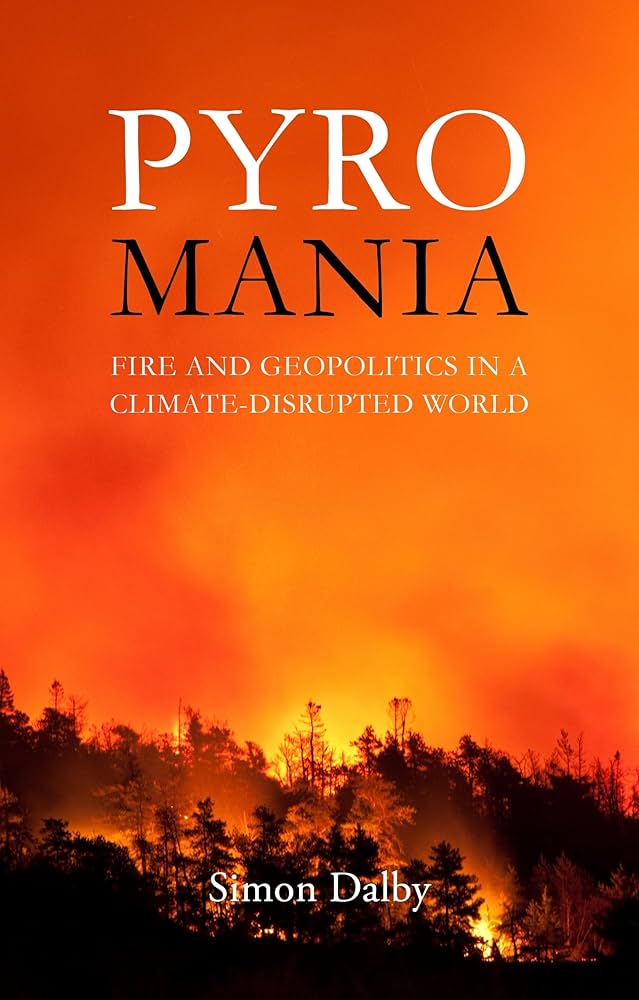“Pyromania is an impulse control disorder in which individuals repeatedly fail to resist impulses to deliberately start fire.”
. . .
Prometheus stole fire from the gods and gifted it to humanity, for which he was punished by Zeus. Chained to a rock, he had his liver eaten by eagles each day, only for it to regrow overnight, having the same torment the next day!
As mentioned in this book, the way it is pictured in Greek mythology underscores the monumental importance of fire for humankind and how it drastically changed the course of history. From the moment early humans first harnessed the power of fire, it has been both a tool of survival and a catalyst for progress. Fire cooked our food, warmed our homes, and powered the engines of industry. Yet, this ancient ally has become a double-edged sword, driving us towards environmental catastrophes and probable extinction.

In “Pyromania: Fire and Geopolitics in a Climate-Disrupted World,” Simon Dalby examines fire’s role in shaping human societies. He begins with picturing early humans gathered around campfires and takes us all the way to the Industrial Revolution, where the discovery of fossil fuels unleashed unprecedented economic growth but also set the stage for the climate crisis we face today. The narrative is rich with historical anecdotes and scientific insights, making it both informative and engaging.
The book gives all you need to know about the history of fire from a whole new perspective. If you are familiar with the topic, much of the data shared, whether as an introduction or a future perspective, may sound familiar. However, the portion of data presented is just right—both as a reminder for those familiar with and a perfect holistic piece of information for those unaware of the topic. More importantly, it exemplifies the power of storytelling with the idea of “Pyromania,” which you can’t get out of your head as you turn the pages. It leaves a lasting impression, making you reconsider information you may already know about fossil fuels, history of wars, geopolitics, and more, all while realizing that we are, quite frankly, sick!
As the chapters unfold, it goes into the geopolitical implications of our “pyromania.” He explores how the quest for energy resources has fueled conflicts and shaped international relations. The burning of fossil fuels, he argues, is not just an environmental issue but a geopolitical one, with nations competing for control over diminishing resources. This section of the book is particularly compelling, as it connects the dots between energy consumption, political power, and environmental degradation. It is indeed the writer’s ability to bring together complex scientific concepts with accessible prose. He explains the mechanisms of climate change, the greenhouse effect, and the carbon cycle in a way that is easy to understand without oversimplifying the issues. His writing is both authoritative and approachable, making the book suitable for both experts and general readers.
Like most books on this topic, its core mission lies in its call to action. Dalby passionately argues for a transition to a post-combustion society. He envisions a future where renewable energy sources like wind, solar, and geothermal replace fossil fuels. This vision is not just a technical shift but a cultural one, requiring a fundamental rethinking of our relationship with energy and the environment. Dalby challenges readers to imagine a world where we live in harmony with nature, rather than exploiting it. In the final chapters, Dalby offers a roadmap for achieving this vision. He discusses policy changes, technological innovations, and grassroots movements that are paving the way toward a sustainable future. The book concludes on a hopeful note, emphasizing that while the challenges are immense, so too is our capacity for innovation and resilience.
Darush Farrokh – University of Alberta
